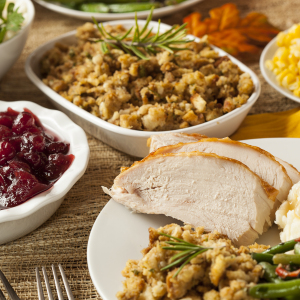The holiday season is an important time for families to come together, enjoy each other’s company, and give thanks for all of our blessings.
While home cooking and football may be more closely associated with Thanksgiving, it is also National Family Health History Day, and I challenge you and your family to take part this year.
The initiative started in 2004 when I was Surgeon General, and it is intended to use traditional holiday gatherings as an opportunity for families to discuss and document information about their families’ medical histories.
It’s important to know your family medical history because it can be a guide for doctors and caregivers to understand and treat the medical challenges that you or your loved ones may be susceptible to. That’s because families share the same genes, and often they have similar behaviors, diets, cultures, and even live in the same general area.
A good family health history should take each of these into account.
When discussing this topic, it’s important to identify specific health conditions that previous or current family members have had – like diabetes, heart disease, cancer, and high blood pressure – as these issues yield the highest likelihood of being passed down from generation to generation.
It may seem silly to even begin such a conversation, or perhaps saddening to recount past family illnesses, but exploring your family medical history enables all members of your family to arm themselves properly against future conditions.
Once you have collected information on your family’s medical health history, be sure to share it with your doctor and with your children’s pediatrician.
The Department of Health and Human Services offers individuals the unique ability to create a family health portrait that analyzes a person’s risk of contracting certain diseases. The questionnaire takes only a few minutes to fill out and, once completed, can be shared with family members and healthcare practitioners. As a result, individuals and their families stay informed about their medical risks, while healthcare professionals are provided with valuable recommendations on how to detect early warning signs and help reduce risk of illness.
As we enjoy the company of loved ones this holiday season, take the time to discuss what medical risks run in your family. Doing so doesn’t just hold each of us accountable for our own health; it also increases awareness among our families to ensure we can all have healthier and happier futures, including many more holiday feasts, together.

